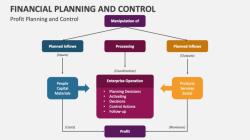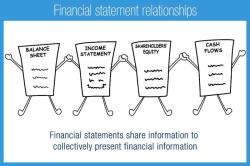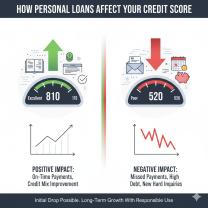Can you add closing costs to a mortgage loan?
Yes, it's possible to add closing costs to a mortgage loan, but it's important to understand the feasibility, process, and implications involved:
Feasibility: Lenders often allow borrowers to include closing costs in the mortgage loan amount. This can help borrowers who might not have enough cash on hand to cover these upfront expenses. However, not all lenders may offer this option, and even those that do may have specific guidelines or limitations.
Process: If a lender permits including closing costs in the mortgage, they'll typically add these costs to the loan amount during the underwriting and approval process. The borrower doesn't need to pay these costs upfront; instead, they become part of the total loan balance.
Implications:
Higher Loan Amount: Adding closing costs to the loan increases the total amount borrowed. As a result, the borrower pays interest on these costs over the life of the loan, potentially increasing the overall cost.
Loan-to-Value Ratio (LTV): Including closing costs affects the loan-to-value ratio. This ratio represents the loan amount compared to the home's appraised value. A higher LTV might lead to a requirement for private mortgage insurance (PMI) or affect loan terms.
Monthly Payments: Spreading closing costs over the loan term can make monthly mortgage payments slightly higher than if the costs were paid upfront.
Considerations:
Interest Costs: While rolling closing costs into the mortgage can ease immediate financial burden, it increases the long-term interest payments.
Eligibility and Lender Policies: Not all loans or lenders permit including closing costs in the mortgage. Borrowers should discuss this option with their lender and understand the terms and implications before proceeding.
Total Cost: Evaluate the total cost of borrowing, considering both the upfront savings and the additional interest payments over the loan term. Sometimes, paying upfront might be more cost-effective in the long run.
Alternatives:
Seller Concessions: Negotiating with the seller to cover some or all of the closing costs could be an option.
Down Payment Assistance Programs: Some programs or grants assist with closing costs for eligible buyers.
Personal Savings or Gifts: Using personal savings or receiving gifts from family members could cover closing costs without adding them to the loan.
Before deciding whether to add closing costs to a mortgage, borrowers should carefully assess their financial situation, discuss options with their lender, and weigh the short-term benefits against the long-term implications of increasing the loan amount and interest payments.
Is it possible to include closing costs in the mortgage loan amount?
Yes, it is possible to include closing costs in the mortgage loan amount. This is called "rolling closing costs into the loan" or "financing closing costs." When you roll closing costs into the loan, you are essentially borrowing more money from the lender to cover the upfront costs of the mortgage. The closing costs are then added to the loan amount, and you repay them over the life of the loan, just like you would repay the principal amount.
How do closing costs affect the overall expense of a mortgage loan?
Closing costs can significantly impact the overall expense of a mortgage loan. Closing costs typically range from 2% to 5% of the loan amount. For example, if you take out a $200,000 mortgage, you can expect to pay closing costs of $4,000 to $10,000.
What options exist for covering closing costs in a mortgage agreement?
There are a few different options for covering closing costs in a mortgage agreement. In addition to rolling closing costs into the loan, you can also:
Pay closing costs upfront: This is the most straightforward option, but it can require a significant amount of cash upfront.
Ask for seller concessions: In some cases, the seller may be willing to pay some or all of the closing costs to make the sale more appealing to buyers.
Negotiate with the lender: You may be able to negotiate with your lender to reduce the closing costs or find ways to offset them, such as by using lender credits or reducing your loan amount.
How does rolling closing costs into a loan impact interest and payments?
Rolling closing costs into the loan will increase your monthly mortgage payments because you are borrowing more money over the life of the loan. The exact amount of the increase will depend on the loan amount, interest rate, and loan term. For example, if you roll $5,000 in closing costs into a $200,000 mortgage with a 5% interest rate and a 30-year term, your monthly payment will increase by about $25.
Can negotiating with the lender alter the handling of closing costs in a mortgage?
Yes, negotiating with the lender can alter the handling of closing costs in a mortgage. Lenders have some flexibility in how they structure mortgage loans, and they may be willing to negotiate closing costs in certain cases. For example, they may be willing to reduce closing costs if you are a well-qualified borrower with a good credit score.
Here are some tips for negotiating closing costs with your lender:
Shop around for different lenders: Get quotes from multiple lenders to compare closing costs and interest rates.
Come prepared with a strong negotiating position: The more attractive you are as a borrower, the more likely your lender will be to negotiate. Make sure your credit score is in good shape and that you have a steady income.
Be willing to compromise: Don't expect to get all of the closing costs waived, but you may be able to get some of them reduced.
Be persistent: If your lender is not initially willing to negotiate, don't give up. Try to reach out to a different representative or supervisor.
By following these tips, you may be able to save a significant amount of money on closing costs.













